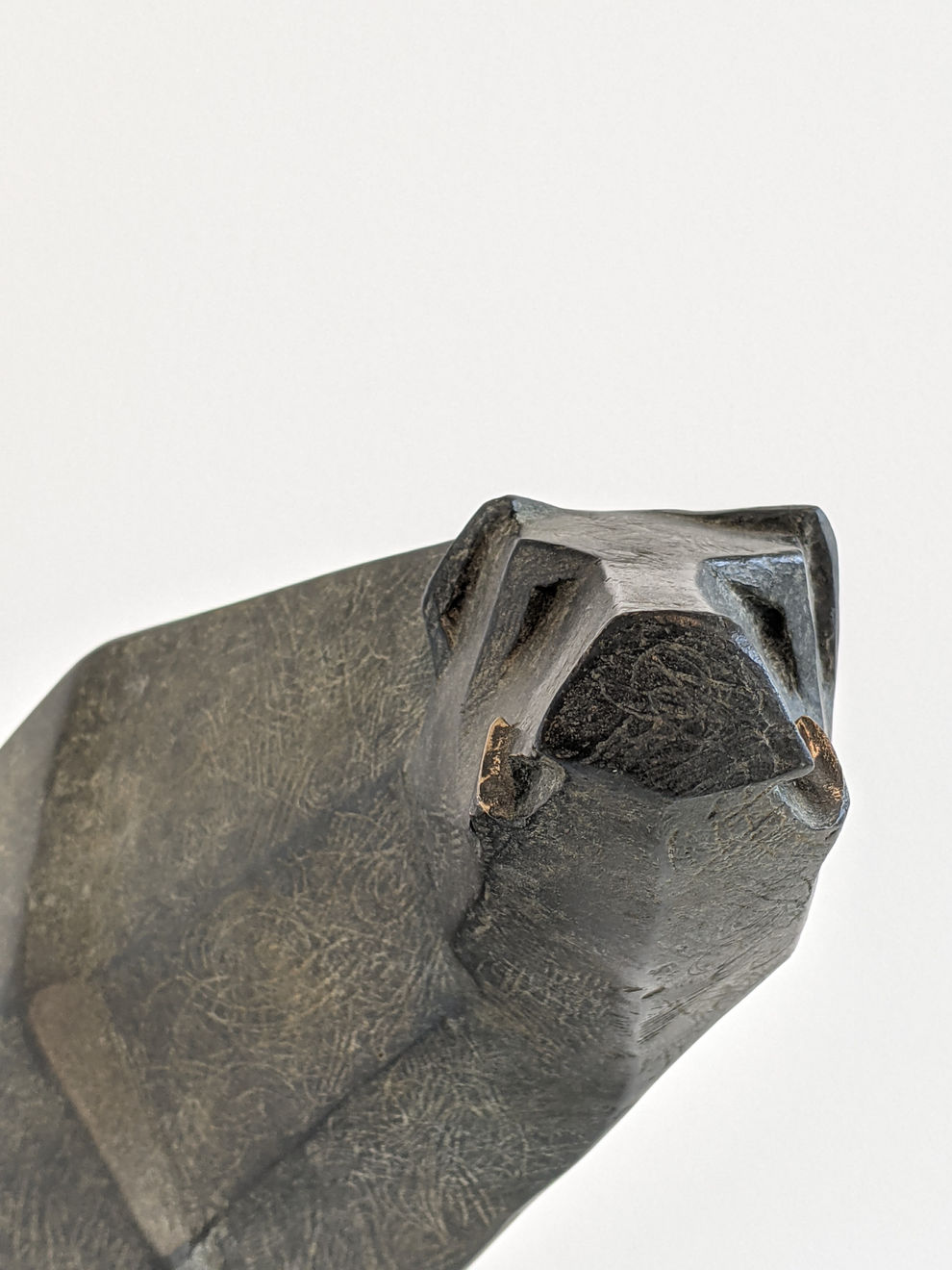Terence Coventry British, 1938-2017
Sitting Boar Maquette, 2004
Bronze
27 x 36 x 18 cm
10 5/8 x 14 1/8 x 7 1/8 in
10 5/8 x 14 1/8 x 7 1/8 in
Edition 8 of 10
Copyright Terence Coventry
Photo: Steve Russell Studios
Currency:
Further images
The power behind Coventry’s sculpture was his strong affinity with the subjects he created and his work is rooted in a strong figurative tradition. His sculpture explored the animals familiar...
The power behind Coventry’s sculpture was his strong affinity with the subjects he created and his work is rooted in a strong figurative tradition. His sculpture explored the animals familiar to him from his years farming such as birds, bulls, cows and boars, eloquently capturing their ruggedness
and gentleness, their movement and behaviour.
Inspired by Marino Marini, Giacomo Manzu and Lynn Chadwick, Coventry worked in a range of materials from ferrous concrete and steel to bronze and silver whilst also being a skilful draughtsman and printmaker. Talking about the making processes for his sculpture he said:
“A lot of what I do is about solving problems and the more knowledge you have of how you solved the previous problems the more you can apply them to the next ones. With steel in particular it’s about being conscious of what the practical possibilities are so that you can try and treat the medium with some sort of respect. Plaster is much more organic, you can manipulate it and make curves, whereas steel is more restrictive so there’s an inherent discipline to it. To counter this rigidity, I try to introduce a subtlety of message into the work that gives the viewers eyes a journey through the piece...I don’t expect the viewer to be aware of that but I feel very satisfied to get a subliminal structure, even on the plaster works, that leads the eye forward.”
Coventry's sculptures are held in many public and private collections around the globe. His estate is represented by Pangolin.
and gentleness, their movement and behaviour.
Inspired by Marino Marini, Giacomo Manzu and Lynn Chadwick, Coventry worked in a range of materials from ferrous concrete and steel to bronze and silver whilst also being a skilful draughtsman and printmaker. Talking about the making processes for his sculpture he said:
“A lot of what I do is about solving problems and the more knowledge you have of how you solved the previous problems the more you can apply them to the next ones. With steel in particular it’s about being conscious of what the practical possibilities are so that you can try and treat the medium with some sort of respect. Plaster is much more organic, you can manipulate it and make curves, whereas steel is more restrictive so there’s an inherent discipline to it. To counter this rigidity, I try to introduce a subtlety of message into the work that gives the viewers eyes a journey through the piece...I don’t expect the viewer to be aware of that but I feel very satisfied to get a subliminal structure, even on the plaster works, that leads the eye forward.”
Coventry's sculptures are held in many public and private collections around the globe. His estate is represented by Pangolin.









